Gluten Nutrient

Are there any health benefits to eating a gluten-free diet even if you don't have an allergy or intolerance ?
Eating a gluten-free diet has become increasingly popular in recent years, with many people choosing to eliminate gluten from their diets for various reasons. However, the question remains: are there any health benefits to eating a gluten-free diet even if you don't have an allergy or intolerance? ### Possible Health Benefits While the scientific evidence is limited and often conflicting, some studies suggest that a gluten-free diet may offer certain health benefits, even for those without celiac disease or gluten sensitivity. Here are a few potential advantages: 1. **Improved Digestive Health** - Some individuals report fewer digestive issues when they avoid gluten, such as bloating, gas, and diarrhea. 2. **Reduced Inflammation** - Gluten can cause inflammation in some people, which may contribute to chronic diseases like heart disease and diabetes. A gluten-free diet might help reduce this inflammation. 3. **Weight Loss** - Since many gluten-free products are lower in calories and fat than their gluten-containing counterparts, switching to a gluten-free diet could potentially lead to weight loss. 4. **Better Nutrient Absorption** - For those with undiagnosed gluten sensitivity, avoiding gluten may improve nutrient absorption and overall gut health. 5. **Increased Energy Levels** - Some people claim they feel more energetic after eliminating gluten from their diets, possibly due to improved digestion and nutrient absorption. ### Potential Downsides It's important to note that a gluten-free diet isn't necessarily healthier for everyone, and it can have its drawbacks: 1. **Nutrient Deficiencies** - Gluten-free foods often lack essential nutrients found in whole grains, such as fiber, B vitamins, iron, magnesium, and selenium. 2. **Higher Cost** - Gluten-free products tend to be more expensive than their gluten-containing counterparts. 3. **Processed Foods** - Many gluten-free alternatives are highly processed and contain added sugars, fats, and sodium to improve taste and texture. 4. **Social Challenges** - Dining out or attending social events can be more difficult on a gluten-free diet due to cross-contamination risks and limited menu options. 5. **Lack of Scientific Evidence** - There isn't enough research to support the idea that a gluten-free diet provides significant health benefits for people without allergies or sensitivities. ### Conclusion While a gluten-free diet may offer some potential health benefits for individuals without celiac disease or gluten sensitivity, these benefits are not guaranteed and should be weighed against the possible downsides. It's always best to consult with a healthcare professional before making significant changes to your diet, especially if you suspect you have an allergy or intolerance.
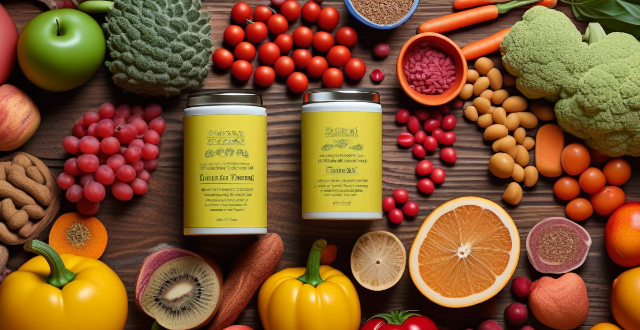
How does going gluten-free affect children's nutrition ?
Going gluten-free can affect children's nutrition by reducing their intake of protein, vitamins, minerals, and fiber. To ensure they receive all the necessary nutrients, parents should include alternative sources of protein, such as beans and nuts, and high-fiber foods like fruits and vegetables. Meal planning is key to ensuring a balanced diet, and shopping tips include reading labels carefully and comparing prices. With careful planning, it is possible to provide children with healthy and delicious gluten-free meals that meet all nutritional needs.
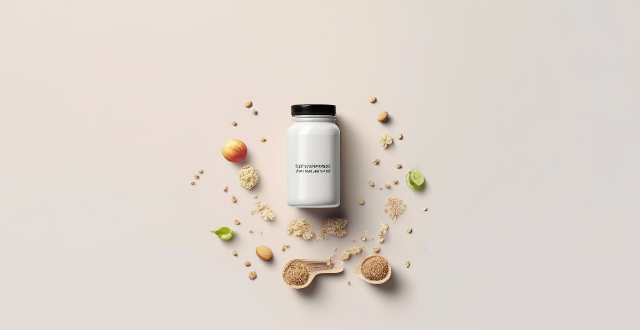
Are there any potential side effects of switching to a gluten-free diet ?
Switching to a gluten-free diet can have several potential side effects, including nutrient deficiencies, digestive issues, weight gain, headaches and fatigue, and higher cost. It is important to be aware of these potential side effects and take steps to ensure adequate nutrition on a gluten-free diet. Consultation with a healthcare professional is recommended before making any significant changes to your diet.
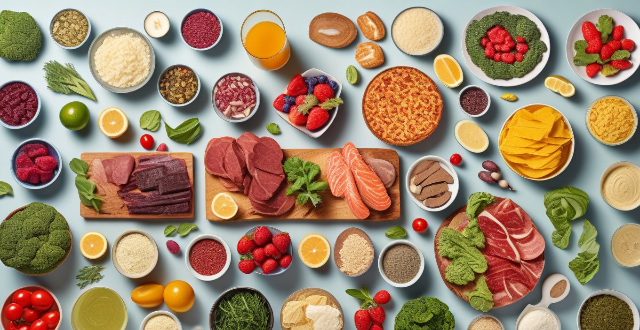
What are some good gluten-free food options for people with celiac disease ?
Celiac disease is an autoimmune disorder that damages the small intestine and requires a strict gluten-free diet. Good gluten-free food options for people with celiac disease include fruits and vegetables, meat and fish, gluten-free grains and starches like quinoa and brown rice, dairy products, nuts and seeds, gluten-free flours and baking mixes, and gluten-free snacks and beverages like popcorn and juices.
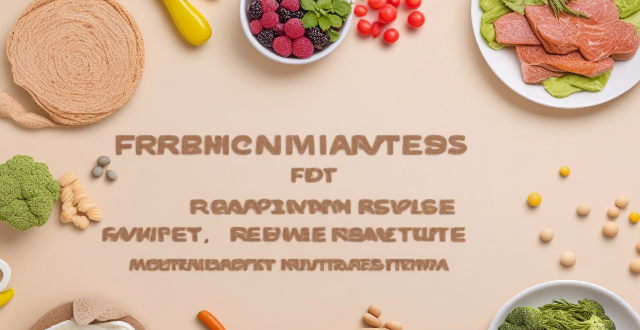
How can I maintain a balanced diet while following a gluten-free lifestyle ?
The text provides tips on maintaining a balanced diet while following a gluten-free lifestyle, emphasizing the importance of whole foods, gluten-free grains, healthy fats, protein, fiber, limiting processed foods, and staying hydrated. It suggests seeking professional advice if needed.

Can you suggest any delicious gluten-free recipes ?
Gluten-free recipes are becoming increasingly popular as more people are diagnosed with celiac disease or choose to follow a gluten-free diet for other reasons. Here are some delicious and easy-to-make gluten-free recipes, including pancakes, oatmeal, sandwiches, and salads.

What kind of restaurants offer reliable gluten-free menus ?
Gluten-free menus are becoming more common in restaurants, but it's important to know where to find reliable options. Fast food chains, fine dining restaurants, ethnic eateries, vegetarian/vegan spots, and bakeries/cafes all offer gluten-free items. Look for certifications, check online reviews, and ask questions to ensure safe and satisfying meals.

How do I know if a product is truly gluten-free ?
Gluten-free products are becoming increasingly popular, but it's important to know how to identify whether a product is truly gluten-free. Here are some tips: 1. Check the Label 2. Look for Certifications 3. Read the Ingredient List 4. Be Wary of Cross-Contamination 5. Trust Reputable Brands 6. Ask Questions
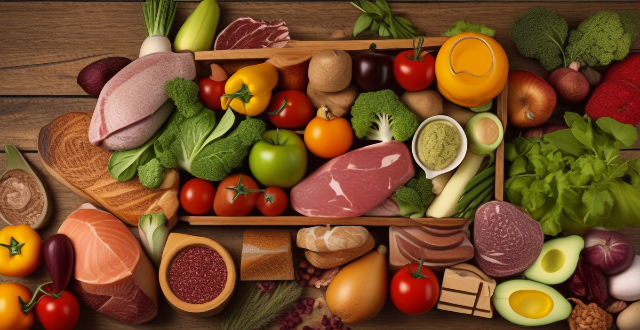
What are some good options for gluten-free lunch box meals ?
Gluten-free lunch box meals offer variety and nutrition for those with dietary restrictions. This guide suggests sandwich alternatives, protein-packed options, vegetable-focused meals, grains and legumes, and desserts and snacks that are gluten-free. It encourages creativity in meal planning to ensure enjoyable and nutritious midday meals.
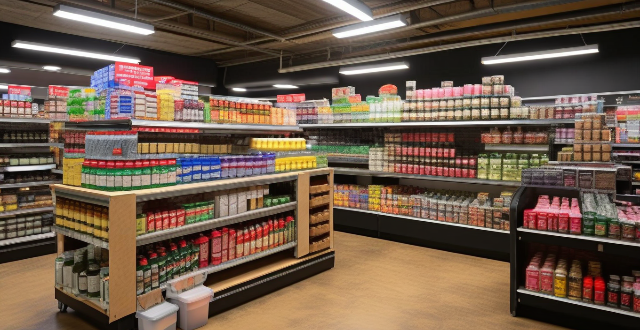
Is it more expensive to buy gluten-free products compared to regular ones ?
Gluten-free products are generally more expensive than regular ones due to higher production costs, specialized equipment needs, and a smaller market. The price difference can be significant, with some gluten-free items costing up to double the amount of their gluten-containing counterparts.

What are some dinner recipes that are gluten-free and still taste great ?
Gluten-free diets have become increasingly popular in recent years, not just for those with celiac disease or gluten sensitivities but also for those looking to try a new way of eating. Luckily, there are plenty of delicious dinner recipes that are gluten-free and still taste great. Here are some of our favorites: 1. Grilled Chicken with Roasted Vegetables 2. Quinoa Stuffed Bell Peppers 3. Gluten-Free Pizza
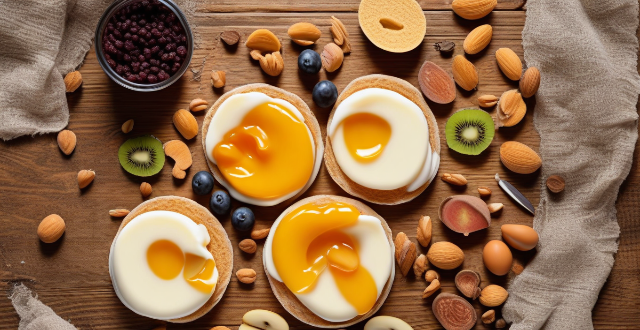
What are some gluten-free breakfast options that don't sacrifice flavor ?
Gluten-Free Breakfast Options that Don't Sacrifice Flavor: Gluten-free pancakes, oatmeal with fruits and nuts, egg dishes, smoothies, gluten-free cereals, and breads are all delicious and healthy breakfast options for those who are gluten-free.

What are the most common ingredients used in gluten-free baking ?
Gluten-free baking is a method of preparing baked goods without using wheat flour or other sources of gluten. Here are the most common ingredients used in gluten-free baking: Flours and Starches: Rice Flour, Almond Flour, Potato Starch, Tapioca Flour, Cornstarch Binding Agents: Xanthan Gum, Guar Gum, Eggs Sweeteners: Honey, Maple Syrup, Stevia Fats and Oils: Butter, Coconut Oil, Olive Oil
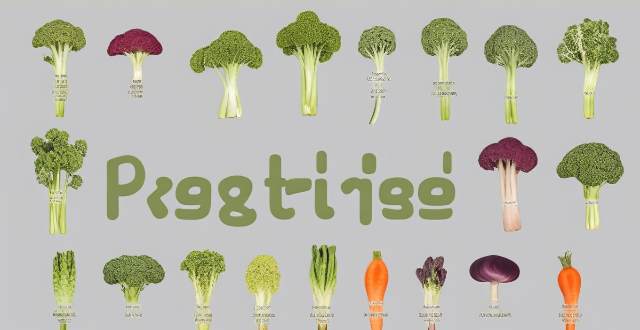
What are some vegetarian recipes that are also gluten-free ?
This text provides three vegetarian and gluten-free recipes that are both nutritious and delicious. The first recipe is for lentil soup, which is a hearty and filling meal. The second recipe is for quinoa salad, which is a great source of protein and makes an excellent base for a salad. The third recipe is for zucchini noodles with pesto sauce, which is a fantastic gluten-free alternative to traditional pasta. These recipes showcase the diversity of flavors and textures that can be achieved on a vegetarian and gluten-free diet.
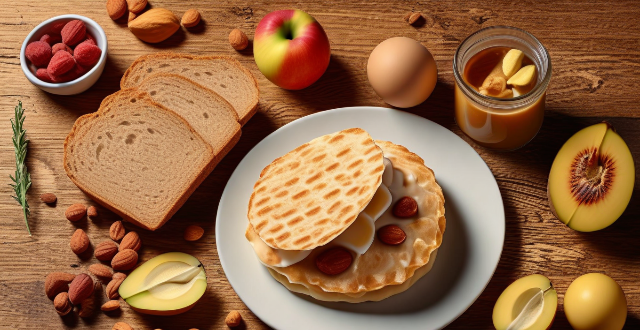
Are there any gluten-free breakfast alternatives that are also healthy ?
Gluten-free breakfast alternatives include oatmeal, eggs, yogurt with fruits and nuts, smoothies, and pancakes made from almond flour. These options provide essential nutrients such as fiber, protein, calcium, and vitamins while avoiding gluten.

What are some vegetarian or vegan breakfast options that provide enough energy ?
The given vegetarian or vegan breakfast options are packed with nutrients and provide sufficient energy to start the day. Tofu scramble is a protein-packed dish that can be made versatile by adding various vegetables. Oatmeal with fruits and nuts is high in fiber and healthy fats, providing sustained energy throughout the morning. Smoothie bowls are customizable and quick to make, while avocado toast is rich in healthy fats and can be made gluten-free. Overall, these breakfast options offer numerous health benefits due to their nutrient content and can help individuals start their day off right.
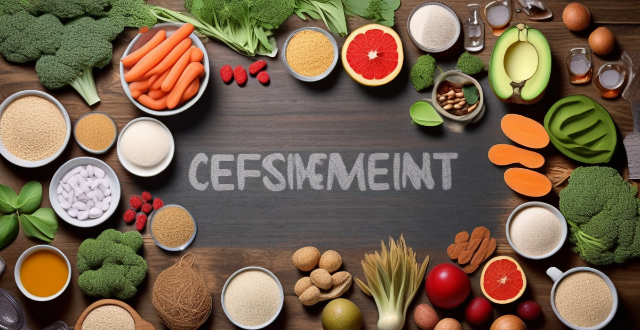
What are some common nutrient deficiencies in women and how can they be addressed ?
The text lists common nutrient deficiencies in women, including iron, calcium, vitamin D, folate, vitamin B12, magnesium, and iodine. For each deficiency, it provides symptoms and solutions such as consuming specific foods or taking supplements.
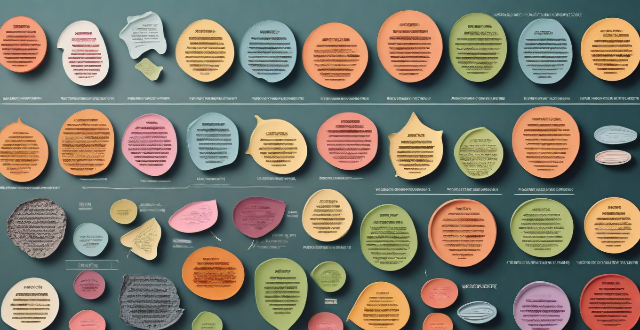
How does climate change impact the nutritional value of crops ?
Climate change is affecting the nutritional value of crops by altering CO2 levels, temperature fluctuations, and water availability. Elevated CO2 concentrations can lead to nutrient dilution in staple crops like wheat, rice, and soybeans. Temperature extremes cause protein denaturation and interfere with enzyme function, reducing nutrient content. Water stress from drought or flooding impairs nutrient uptake and synthesis. Adaptation strategies include breeding resilient crop varieties, implementing efficient irrigation systems, and using protective structures against extreme temperatures. By addressing these challenges, it's possible to maintain crop nutrition amidst climate change impacts.

How important is nutrition in optimizing athletic performance at a competitive level ?
Nutrition is crucial for athletic performance, providing energy, aiding recovery, and maintaining health. Key aspects include consuming carbohydrates for energy, proteins for muscle repair, staying hydrated, obtaining necessary micronutrients from a varied diet, timing nutrient intake around exercise, and personalizing nutrition plans. These practices help athletes maximize their training and competitive outcomes.
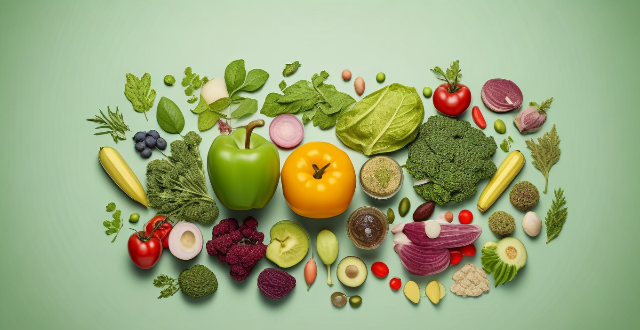
Are organic foods safer than conventionally grown foods ?
The article discusses the pros and cons of organic versus conventionally grown foods, including factors such as pesticide use, nutrient content, cost, availability, and environmental impact. While organic foods offer benefits in terms of reduced exposure to synthetic chemicals and potentially higher nutrient content, they also come with higher costs and limited availability. Conventionally grown foods are often more affordable and widely available but may contain lower levels of certain nutrients and pose potential risks from exposure to synthetic chemicals. The choice between organic and conventional foods ultimately depends on individual preferences and priorities when it comes to health, affordability, and environmental impact.

Should I use fertilizer for my indoor plants, and if so, how often ?
Fertilization is crucial for indoor plants, providing essential nutrients for growth. The need for fertilizer depends on factors like plant type, soil quality, and light exposure. Most indoor plants benefit from monthly fertilization during the growing season, while slow-growing plants may need it less frequently. Signs of nutrient deficiency can guide adjustments to the fertilization schedule. Choosing the right fertilizer involves considering its type (synthetic or organic) and NPK ratio. Proper application includes diluting the fertilizer, watering beforehand, and avoiding direct contact with leaves and stem. Balancing nutrients and care ensures healthy plant growth without the risks of over-fertilization.
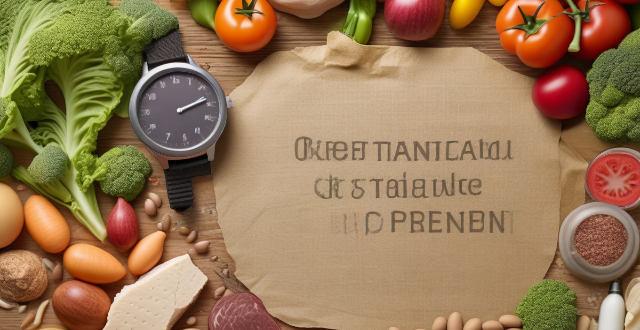
How do I ensure I'm getting enough nutrients on a vegetarian diet ?
This topic discusses the essential nutrients to watch on a vegetarian diet and provides tips for meal planning. It highlights key nutrients such as protein, iron, vitamin B12, calcium, vitamin D, and omega-3 fatty acids and suggests food sources for each. The text also emphasizes the importance of diversifying intake, considering supplementation, having regular check-ups, and working with a professional to create a balanced meal plan. Overall, it offers guidance on ensuring adequate nutrient intake while following a vegetarian diet.
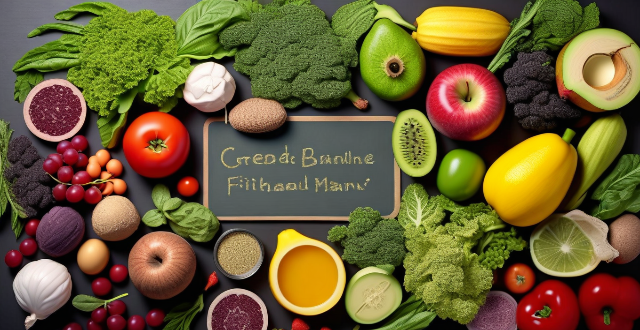
How can I create a balanced fitness meal plan ?
To create a balanced fitness meal plan, start by determining your caloric needs and focus on nutrient-dense foods. Include lean protein, whole grains, fruits, vegetables, and healthy fats in your meals. Balance your macronutrients (carbs, protein, and fats) and plan your meals and snacks ahead of time to ensure you're getting the right balance of nutrients throughout the day. Stay hydrated and be mindful of portion sizes to support your health and fitness goals.

Is it necessary to take supplements for sports nutrition ?
Supplements for sports nutrition are a controversial topic, with some athletes swearing by them and others considering them unnecessary or even harmful. The necessity of taking such supplements depends on various factors including an individual's diet, training intensity, and specific goals. Sports nutrition supplements come in various forms like pills, powders, bars, and liquids, and include protein supplements, creatine, beta-alanine, caffeine, BCAAs, pre-workout formulas, and post-workout formulas. While a balanced diet can provide most of the nutrients needed for optimal athletic performance, there are certain situations where supplements may be beneficial. These include inadequate nutrient intake from food alone, high-intensity or endurance training, and specific goals or deficiencies. However, there are also potential risks associated with taking sports nutrition supplements, such as overconsumption and imbalanced nutrient intake, contamination and quality concerns, and interactions with medications or other supplements. Therefore, it is essential to choose reputable brands, check for third-party certifications whenever possible, and consult with a healthcare professional before starting any new supplement regimen. In conclusion, whether or not it is necessary to take supplements for sports nutrition depends on individual circumstances. While they can offer benefits for certain athletes and scenarios, they should not replace a well-rounded diet rich in whole foods. Before incorporating any supplements into your routine, consider your specific needs and goals and consult with a qualified healthcare professional or registered dietitian for personalized advice.
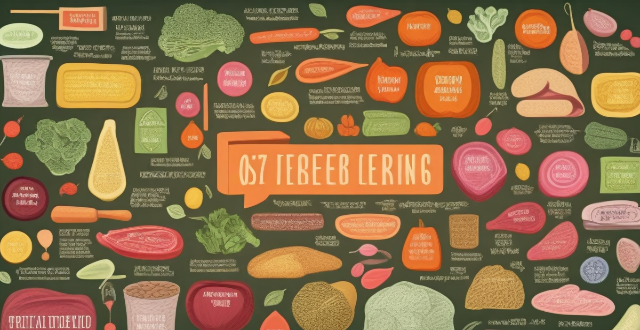
How does food labeling contribute to food safety ?
Food labeling is crucial for food safety as it provides consumers with essential information. It includes ingredient lists, nutritional information, expiration dates, manufacturing details, storage instructions, certification marks, allergy warnings, country of origin, precautionary statements, and environmental impact information. Proper labeling practices help identify ingredients, understand nutritional values, recognize potential risks, and make informed decisions about food consumption.

What kind of soil is best for indoor plants ?
The ideal soil for indoor plants should be well-draining, lightweight, and rich in nutrients. It should contain ingredients like perlite or sand to improve drainage, be lightweight to allow better aeration and root growth, and provide essential nutrients such as nitrogen, phosphorus, and potassium. Popular soil mixes for indoor plants include potting soil mix, coco coir mix, orchid bark mix, and cactus and succulent mix. Each of these mixes caters to different types of plants and their specific needs.
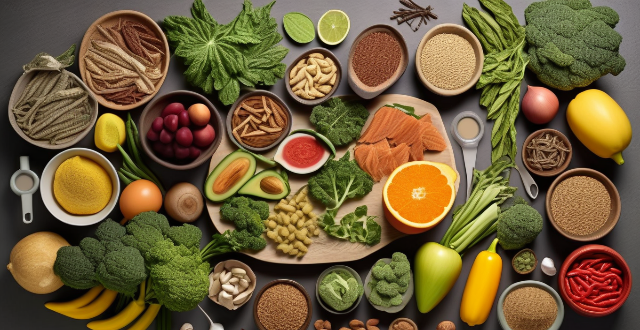
What are some strategies for eating a more plant-based diet ?
Strategies for eating a more plant-based diet include embracing whole foods, experimenting with alternative proteins, getting creative with meal planning, learning about nutritional balance, educating yourself, supporting sustainable practices, and connecting with others. These steps can help you transition to a healthier and environmentally friendly way of eating while ensuring you receive all the necessary nutrients.
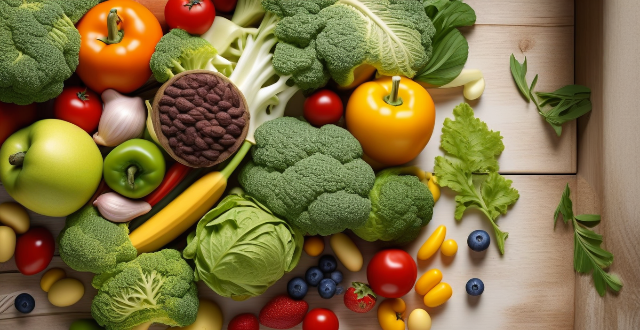
What are the benefits of taking sports supplements ?
Sports supplements offer a range of benefits for athletes, from improved performance and faster recovery to optimized nutrition and health maintenance. They can also enhance mental clarity, provide convenience, aid in weight management, and support hormonal balance. It's crucial to consult with a healthcare professional before using any supplements to ensure they are safe and effective for individual needs and goals.

What prenatal vitamins are recommended for women trying to conceive ?
Prenatal vitamins are crucial for women trying to conceive, as they provide the necessary nutrients for a healthy pregnancy and support the development of a growing fetus. Some recommended prenatal vitamins include folic acid, iron, calcium, vitamin D, and multivitamins with folic acid. By ensuring adequate intake of these essential nutrients, women can increase their chances of having a healthy pregnancy and a healthy baby.
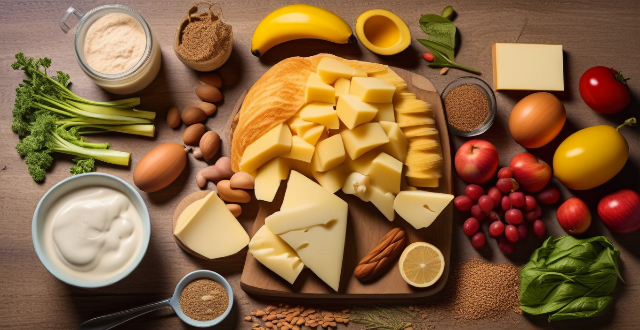
What are the best sources of lean protein for breakfast ?
Including lean protein in your breakfast can help you feel fuller for longer and reduce the likelihood of overeating later in the day. Some of the best sources of lean protein for breakfast include eggs, Greek yogurt, cottage cheese, tofu, nut butters, quinoa, turkey bacon, chia seeds, edamame, and roasted chickpeas. These foods are high in protein and other essential nutrients like calcium, fiber, and healthy fats. They can be prepared in various ways and combined with other ingredients to create a balanced and satisfying breakfast.